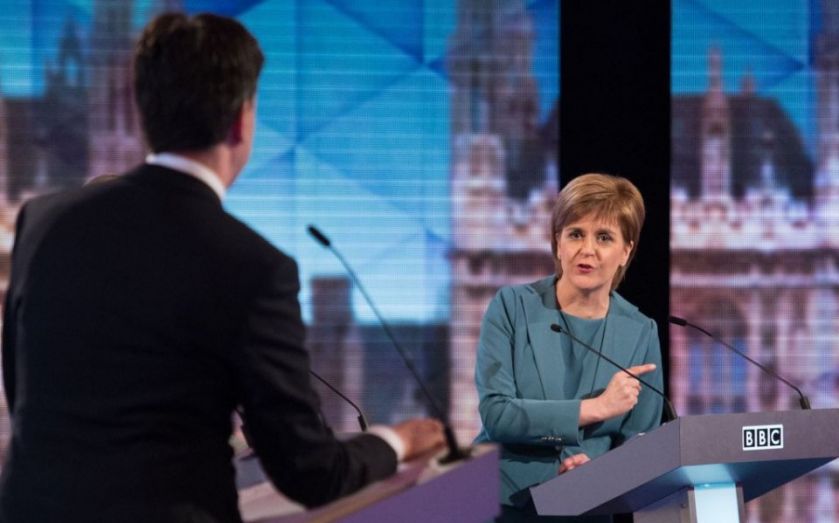Would it be legitimate for the second largest party post-election to form a government?

Andrew Hawkins, chairman of ComRes, says Yes
The second largest party did indeed win the February 1974 Election (a poll with ominous similarities to 2015), when Harold Wilson won four more seats than Edward Heath but received 230,000 fewer votes. Yet it was not thought a constitutional outrage. Even if a party does come second on seats, a government simply needs the confidence of the House of Commons. It doesn’t matter how many parties are required to maintain it.
That said, if Ed Miliband is Prime Minister, having lost to the Conservatives in England and the SNP in Scotland, there will clearly be public disquiet. But the remedy is not to force a politically isolated “winner” (the Tories, in that instance) to form an unworkable government, but to let nature take its course and a workable solution be found. This will be only the second successive hung parliament in 183 years, so we are not used to this sort of outcome. But in some continental countries, it is fairly commonplace.
Jason Hollands, managing director at Tilney BestInvest, says No
It is important to make a distinction between legitimacy from a constitutional perspective and public credibility. The electors of Kingston may not be constitutional precedent experts, but their perception of whether a government broadly reflects the outcome of the election and whether it is stable matters. This could be severely tested if the second largest party is perceived to be substantially influenced by Scottish or Welsh nationalists, rather than other UK-wide parties.
Stable government is one factor that influences how people feel about the future, and that drives economic activity. It also matters in terms of the read through to the markets. There have been some pretty shrill words from prominent business leaders during the campaign warning of a “catastrophe”, and these will be hard to row back from. A potentially unedifying post-election squabble over legitimacy could unnerve investors, putting sterling and the gilt markets under pressure.